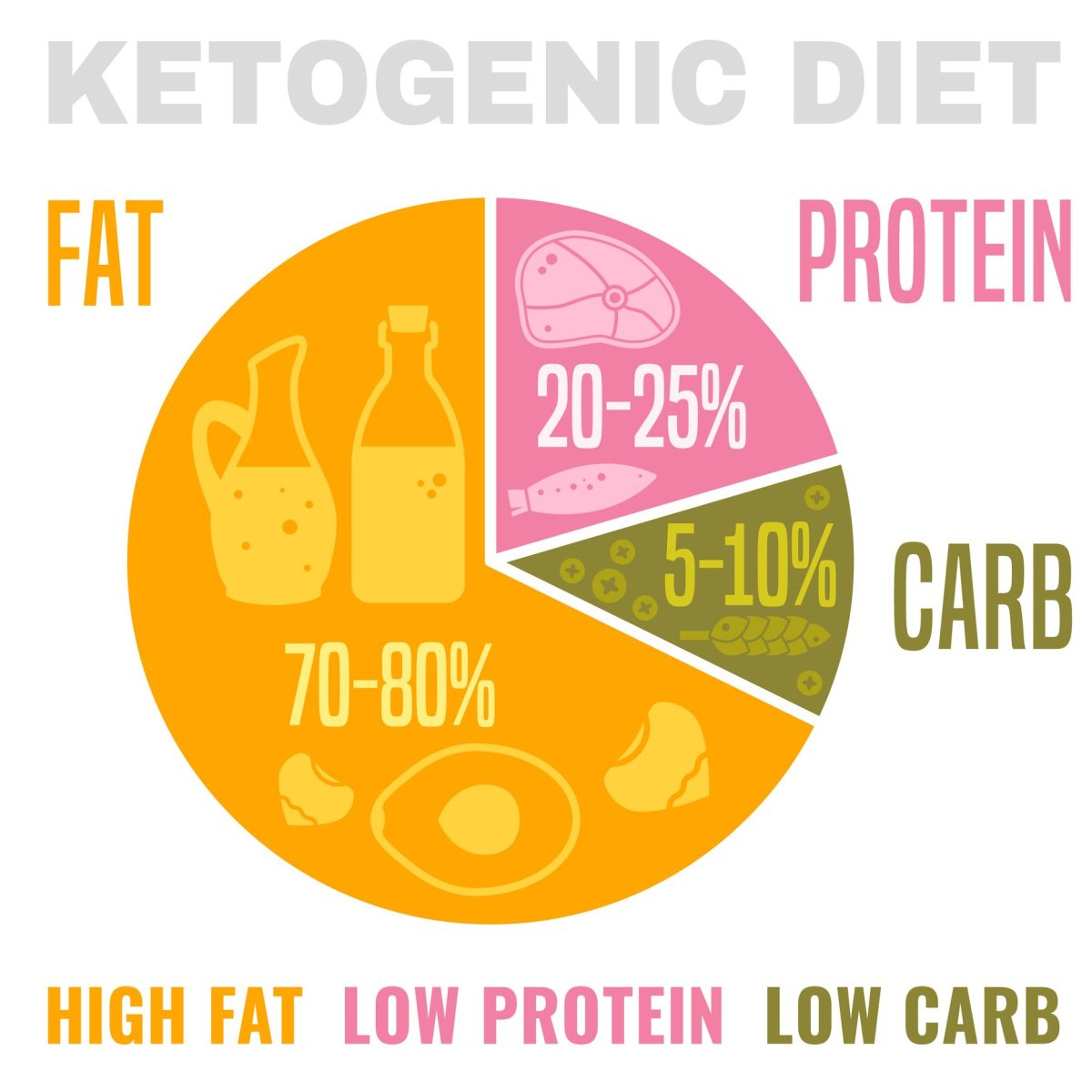
The keto diet is one of the hottest weight-loss strategies today. That's not surprising—who wouldn't want to lose weight fast without counting calories or feeling hungry? But it's not without controversy: Yes, you can eat all the fatty foods you want, but the tradeoff is the extreme restriction of carbohydrates: bread, potatoes, even fruit. Keto dieters are advised to keep carbs to just 10 percent of their daily intake.
More and more studies show that low-carb diets are an effective way to lose weight: A 2018 report out of Framingham State University found that after five months on a low-carb, high-fat diet, overweight adults burned about 250 more calories daily than people who ate a high-carb, low-fat diet. The keto diet in particular has a number of famous adherents, including Halle Berry, Katie Couric and Gwyneth Paltrow. Kourtney Kardashian blogged about doing keto, calling it "a really positive experience." And keto-friendly recipes, snacks and meal plans have proliferated in the past few years.

Where did the keto diet come from?
What many people don't know is that the keto diet, more properly known as the ketogenic diet, was designed in the 1920s as a way to treat epilepsy. It proved highly effective, especially with children, but fell out of favor as new anticonvulsant drugs came to market.
Then in 1994, Dateline ran a story about Charlie Abrahams, a toddler with severe epilepsy whose parents turned to the ketogenic diet in desperation. It worked so well that Charlie was reportedly seizure-free (and drug-free) within a month. In 1997, Charlie's father, Hollywood producer Jim Abrahams, adapted their story into the TV movie ...First Do No Harm, starring Meryl Streep. The saga of the Abrahams reignited interest in a ketogenic diet as a possible treatment for everything from migraines and sleep disorders to autism and Alzheimer's disease. In more recent years, with growing interest in the similar Atkins diet, keto started being touted as a weight-loss strategy, too.
How does the keto diet work?
A ketogenic diet elevates the levels of ketone bodies in the system—these are the byproducts of the body breaking down fat for energy when carbohydrates are in short supply, a process called ketosis. The average American gets most of their energy from glucose, which comes from carbs and sugars. When you're in ketosis, though, your body goes into hyper fat-burning mode, also using up stored body fat, which is why it's effective as a weight-loss strategy.
There are several ways to test if your body is in ketosis, including a blood ketone meter, which is highly accurate but expensive, and urine sticks, which are less precise but widely available at major drugstores. In addition, symptoms of ketosis may include dry mouth, thirstiness and breath that's been described as fruity or metallic.
What foods can you can eat on the keto diet?
Those following the keto diet are advised to restrict carbohydrates to just 50 grams a day at the most, although hardcore keto dieters recommend consuming just 20 grams—about the equivalent of half a hamburger bun or a single banana. Instead, high-fat foods are prioritized, like avocados, olive oil, nuts and butter. Beef and chicken, which have no carbs, are staples of the ketogenic diet, although protein should only make up 20 percent of your daily caloric intake.

Since many fruits and vegetables are rich in sugar and starches (both forms of carbohydrates), they are largely off the menu. You can eat small portions of low-sugar berries as well as leafy greens, but the focus is largely on consuming fats.
Although there are a variety of ketogenic diet plans available, typical keto meals include pork chops, mushroom omelettes and bell peppers stuffed with cheese. Most of the precious carb allowance is used up by vegetables—100 grams of broccoli contains around seven grams of carbs, for example.

Does the keto diet work?
The keto diet is an extremely effective way to lose weight over a short period of time—even better, according to some research, than low-calorie and low-fat diets. There a few reasons for this: When you're in ketosis, your body stores less fat. Dieters feel fuller for longer, partly because of the rich food they're eating, and partly because ketosis changes your hunger hormone levels.
But keeping to the keto diet in the long run can be difficult, especially as the typical American diet is half carbohydrates. Some studies found that, after about a year, the amount of weight lost on a keto diet versus a low-fat diet was about the same.
"The vast majority of people who lose weight with diets will gain it back, and two-thirds of people gain back more than they lost," Nutritionist Alissa Rumsey, creator of the Ditch the Diet Challenge, told Newsweek.
Is the keto diet healthy?
Researchers are divided over whether the keto diet is good for people who don't need to follow it for medical reasons. Since it doesn't differentiate between saturated and unsaturated fats, dieters are at risk of raising their cholesterol levels. And because the heavily restrictive diet cuts out most fruits and vegetables, it can also lead to nutrient deficiency. The Harvard Health Letter warned that with so much fat and protein to metabolize, keto practitioners may experience liver and kidney problems as well.
It takes a few days on the keto diet for your body to transfer to burning ketones instead of glucose; this adjustment period is often referred to as the "keto flu," and can include symptoms like fatigue, diarrhea and nausea. Longer-term side effects can include constipation, confusion and irritability.
And in general, Rumsey warns, going on a restrictive diet "can cause disordered eating behaviors including anxiety around food, feeling out of control with food, losing trust in your body, increased food cravings, overeating and binging."
But if you think keto is right for you, consult your health care provider before getting started.
Uncommon Knowledge
Newsweek is committed to challenging conventional wisdom and finding connections in the search for common ground.
Newsweek is committed to challenging conventional wisdom and finding connections in the search for common ground.
About the writer
To read how Newsweek uses AI as a newsroom tool, Click here.








